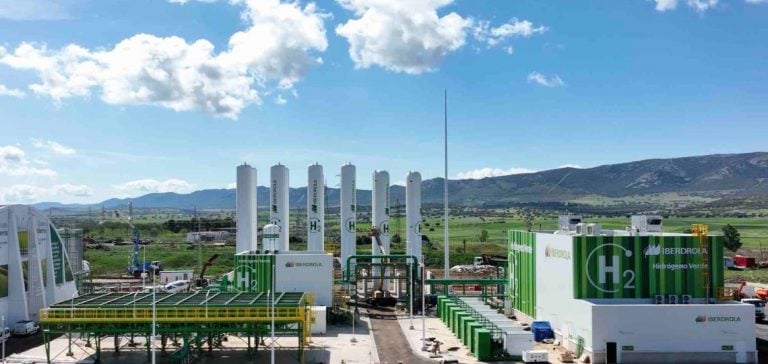Spain is implementing an ambitious €1.2 billion public funding plan to support the development of green hydrogen.
The plan is part of a wider strategy to decarbonize the industrial and energy sectors.
This investment is aimed at boosting hydrogen production capacity from renewable sources, in line with the European objective of carbon neutrality by 2050. At the same time, Spain aims to achieve 11 GW of electrolysis capacity by 2030, the highest figure in the European Union. Funds will be allocated primarily to infrastructure such as large-scale electrolysers and hydrogen hubs in several key regions.
The priority is to develop an integrated network linking hydrogen production, storage and distribution.
In addition to this infrastructure, part of the grants will be used to support the hydrogen technology supply chain in Spain, including small and medium-sized enterprises (SMEs).
European support and industrial dynamics
Spain is supported by the European Hydrogen Bank (EHB), a European institution dedicated to hydrogen.
As part of a pilot auction, three major Spanish projects have won awards, reinforcing the integration of hydrogen in key industrial sectors.
DH2 Energy’s Hysencia project, with an electrolysis capacity of 35 MW, received funding to produce 17,000 tonnes of hydrogen over ten years.
It is intended to supply the steel and fertilizer industries via partnerships with ArcelorMittal and Fertiberia.
Another project, El Alamillo H2 by Benbros Energy, is also supported by the EHB.
It stands out for its 60 MW capacity and low production costs, thanks to a competitive price of €0.38/kg.
These projects, combined with the country’s abundant renewable resources, give Spain a significant competitive edge in the hydrogen sector.
Exports: an opportunity for Spain
Unlike other European countries, Spain is positioning itself more as a future exporter of green hydrogen.
While Germany, second in terms of planned capacity, is also aiming for a key role, it is limited by less favorable conditions for renewable energy production.
Spain could take advantage of this situation to export some of its green hydrogen to other European countries, notably Germany, while meeting domestic demand.
The Spanish government has also announced additional support for transport infrastructures, with subsidies for the development of pipelines dedicated to hydrogen transport.
The aim is to increase the efficiency of export flows and facilitate integration into the European market.
This export approach could not only diversify sources of energy revenue, but also strengthen Spain’s energy independence.
A long-term strategy for enhanced competitiveness
Spain’s hydrogen strategy is not limited to one-off investments.
The country is implementing measures to sustain its leadership in this field.
The Ministry of Ecological Transition has imposed rigorous criteria for the allocation of subsidies, requiring long-term commitments from companies wishing to benefit from public funds.
These criteria include requirements for local employment, gender equality, and sustainable development within projects.
The government initiative also allows companies to apply for grants of up to 400 million euros per project, provided they can prove that at least 60% of their hydrogen production will be used locally.
This measure aims to guarantee stable domestic demand, while ensuring that production remains aligned with the country’s decarbonization objectives.
Challenges to overcome despite ambitions
Despite promising initiatives, Spain still faces a number of challenges if it is to become a European leader in green hydrogen.
Hydrogen production remains costly and heavily dependent on public subsidies.
What’s more, the necessary infrastructure, such as pipelines and storage hubs, is not yet fully developed.
Dependence on European funding and a lack of clarity on local hydrogen demand could slow down the development of this sector.
Finally, Spain will need to ensure that its projects meet strict greenhouse gas emission standards if it is to compete effectively in the European market.
Nevertheless, the outlook remains positive, especially as Spain enjoys ideal conditions for renewable hydrogen production, with access to abundant solar and wind resources.






















